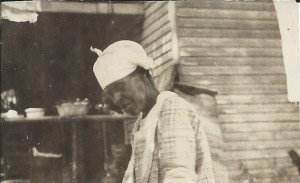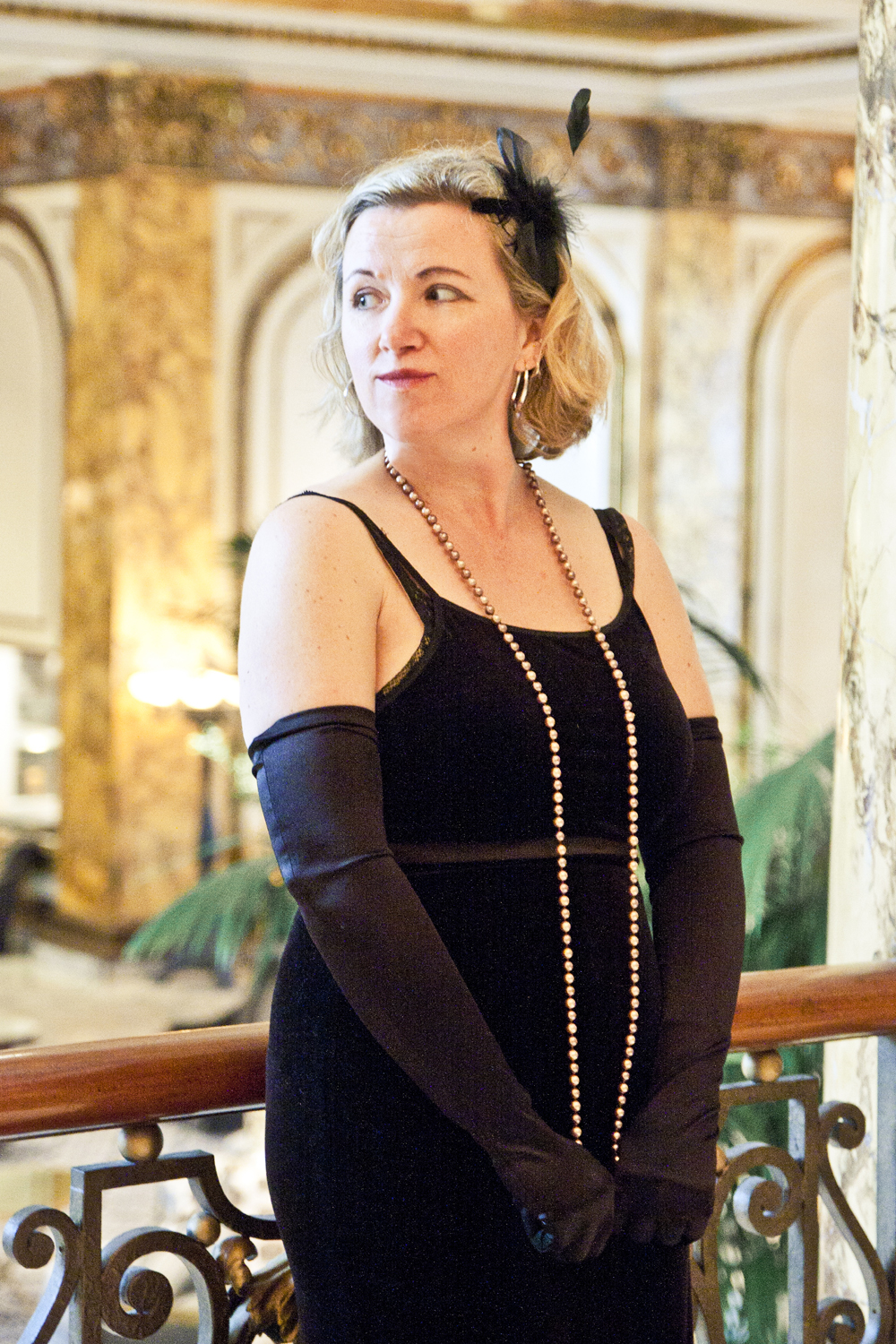The Ugly Truth: Sins of the Forefathers
A few years ago I picked up a book at the library because of its intriguing cover and title. It was Edward Ball’s Slaves in the Family. I read about Ball’s exploration of his roots, delving deeply into his family’s history as slave owners, discovering the ugly truth in his own backyard, as it were. When I finished reading this devastating portrait of Ball’s own family, it took weeks before I could read anything else. My mind was full of the revelations and secrets he had exposed.

Not long after, I was visiting my 93-year-old great-aunt Doris, and we turned to the topic of books. I told her about Ball’s story and offhandedly remarked, “Wow, I’m sure glad we didn’t have slaves in the family. I couldn’t live with that kind of guilt.”
“Oh, but we did,” she said.
To say that I was speechless is an understatement. Doris explained how she remembered hearing about the nine slave cabins “we” had had, a few generations before her in Alabama. She did not say slaves – just slave cabins, mind you – but there’s no getting around this one with semantics. She remembers hearing stories about them, as part of her childhood. She even brought out some very grainy photos, shadowy cabins in shadowy fields, and said, “Those are the ones.” Our slave cabins. Lovely.
Needless to say, that conversation knocked the wind out of me. It is mighty difficult to be smug and complacent about one’s own liberality when one has that kind of stain on one’s hands.
What I felt for weeks, months – for years now, in fact – is repugnance and shame. I felt tainted and helpless to do anything about it. Are the sins of the fathers visited upon the generations to follow? Is there karmic retribution for such deeds? Is there anything that can be done about my own relentless Catholic guilt, pure and simple? I didn’t know then, and I still don’t now.
But it’s a thing I live with – this knowledge that back in my family’s history there are people people who were monsters with no morals whatsoever — or people who were caught up in the mores and practices of their time. Were they confused, or stupid or evil? Or keen entrepreneurs? Or hapless folk much like us who got through their days not worrying so much about the chattel in the field, but about what was for supper, why the children wouldn’t behave and whether it would rain on the church picnic?
I pretty much get through my life like that – on one hand, worrying about the meteor hurtling toward Earth that will turn us all to dust, and on the other, why I can’t get those rust stains out of the white towels and how much easier life would be if I could find a pair of sandals that were both sexy and sensible, and mystery of mysteries, why I can execute a perfect French twist with a pencil and no mirror when washing last night’s dishes, but on important occasions my hair merely resembles the most rakish of English thatched cottages.
And then I open the newspaper – a compulsion, a hazard of the trade, a duty of the 21st-century citizen – and see the mocking grins of U.S. soldiers parading Iraqi prisoners on leashes, or standing behind pyramids made of human bodies or those forced to simulate sex acts for the camera. The faces of the prisoners are covered, in creepy pointed hoods. We can’t see their expressions, can’t know how much the scenario bothers them or not. If you can’t see faces, then you can’t see emotions, like pain, or fear. That makes it easy, doesn’t it?
And in the news reportage, everyone runs for cover – we did what we were told by our superiors, or we didn’t know that this was happening below us in the ranks, or I’m shocked and appalled that this would happen, or I’m not shocked at all; that’s what war is. We knew or we did not know, we are vile perpetrators of gross acts of torture and humiliation, or we are no worse than those we captured, or we are far better than these lowly scum because they are Iraqis and we are Americans and wasn’t Sept. 11 reason enough for you?
There is an answer in this mess, but we may never know the truth. As Pontius Pilate said to Jesus before washing his hands of blood guilt, “What is truth?” What indeed?
I do not profess to know answers to much of anything. Any rumors of knowledge or power on my part have been greatly exaggerated, and any perceptions that we, the media, have an inside clue are frankly just smoke and mirrors. So in these situations, rather than pontificator or spin-mistress, I become a parent, which is about the best I can offer.
As I tell my children, when someone tells you to do something you know is wrong, you have to have the courage to stand up and say no. Even if everyone else is doing it, if it’s wrong, it’s wrong.
If you are in charge of a project or a team or a committee or a war, and something goes wrong, you are responsible, even if you did not know that thing would go wrong. Fix it; that’s what responsibility is.
And hurting people is not OK. It’s not acceptable to use force to get what you want, to be wantonly cruel to animals or smaller, weaker people to prove a point. Bullying is wrong.
But we know all these things, don’t we? Regardless of your opinion of this war (and guess what? It ain’t over yet, despite the nicely staged announcement several months ago), despite the Vietnam comparisons and the sacrifices being made by our own Alamedans, our reservists, our family members overseas, despite dire pronouncements left and right, the brutal fact is that war is hell. People die who do not deserve to. And terrible, unspeakable things sometimes happen.
As for me, safe in my little house thousands of miles from real danger, I cannot judge those who fight it, or wage it, or win or lose it. But in this particular war, I can’t see redemption. I feel helpless and angry and plagued with guilt over what happens in my name, over how we achieve our goals and how we fail to achieve them. Curse me for a fool, but I’m just wishing we’d spent a little more time talking, or planning, before coming to blows. And I’m hoping that future generations won’t look back on us with the same sense of guilt and shame.
This essay first appeared as a newspaper column in the Alameda Sun in 2005. Modern Muse copyright Julia Park Tracey 2005.


One Comment
Michelle Chouinard
Excellent essay! You touched on so much throughout that’s so confusing and tragic about human psychology. Have you read Phil Zimbardo’s stuff on the role of dehumanization in things like war, slavery, and genocide? And I’m sure you’ve heard of the Milgram studies on the nature of obedience to authority and how easy it is to get people to do things they think are wrong (and how good they are at justifying it after the fact). I believe the only way we can work against these aspects of the human psyche is to never lose sight of them–and pieces just like this help us do that. Brava.